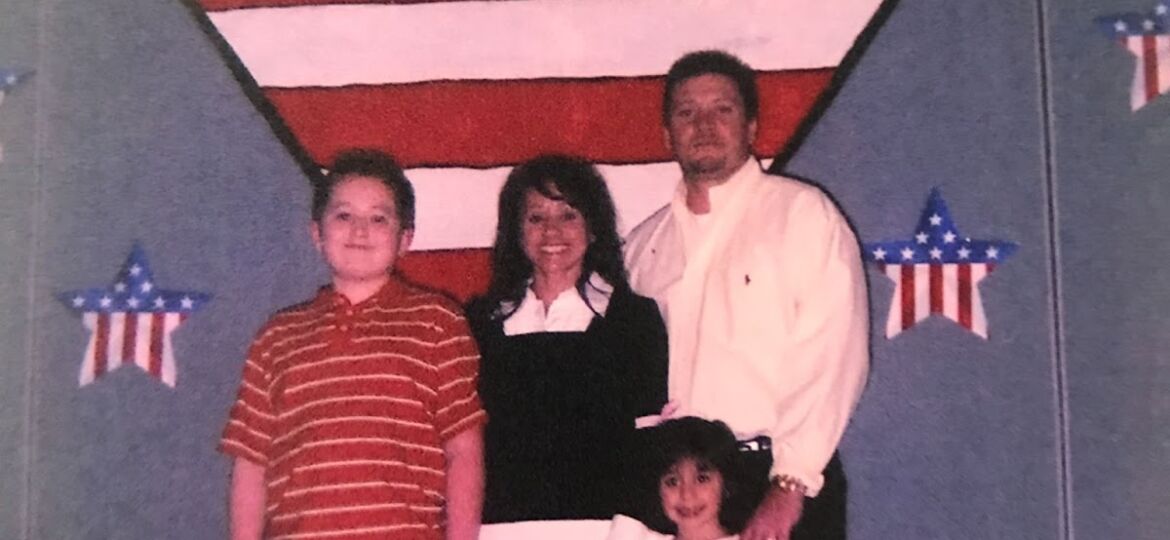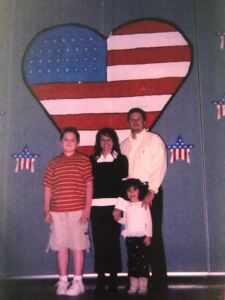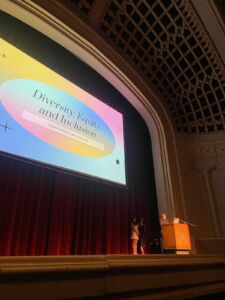
From Guanajuato to Boulder: My experience as the daughter of an immigrant in Fraternity and Sorority Life
The Panhellenic Vice President of Diversity, Equity, and Inclusion (DEI) shares her family’s story of immigration and how it led her to lead change.
Valle de Santiago: a historic city nestled in the east-central portion of its state, Guanajuato, Mexico. To my nana, Merced, and my papa, Ben, San Miguel de Allende was not their home, but at the time was a city only accessible by foot or donkey.
I remember the stories my mom, Jovita, told me growing up. One of which was where she was nearly born on a donkey as my nana rode it to get to the nearest doctor to give birth to her second daughter. Others included the times she would climb trees and sing songs that her grandma Sophia sang to her and her sisters.
Though, I was too young to know that the majority of my mother’s stories were of despair and poverty. I guess she was once too young to know as well.
My mom’s side of the family grew up and lived on a ranch in rural Guanajuato, Mexico. Life was simple, yet indescribably complicated. One of those stories my mother told me was about how her grandma Sophia would often skip meals so that her boys would be able to eat and work in the fields that day.
Though, a key story was once told to me several times throughout my life.
I could go on to describe the details of how my family had no other choice but to leave Mexico, but I fear that it could endanger my family who still live on the ranch.
In November of 1973, my mom, who was a mere 5 years old, was awoken in the middle of the night to be taken into the back of a flat-bed truck. From what she remembers, the bed of the truck was filled with hay and she could only bring her stuffed animal; it fell out of her hands and onto the dirt path behind the car as it raced off into the night.
Between hiding in underground tunnels, taking a small crop plane, hiding in a family member’s home in Arizona, and ultimately landing in Idaho where my family would find, hopefully, permanent residence, my family illegally immigrated to the United States.
My nana and papa took that chance knowing that they most likely would never see their family in Mexico ever again.
Another story my mom tells me is that she remembers being very young and helping my nana and papa work multiple jobs to stay afloat. At this time, her youngest sister was born.
My nana and papa, freshly in a new country and not knowing how to speak English, had to support four young girls.
By a miracle, they were granted permanent residence when my mom was in the seventh or eighth grade.
It was not until I was nearly 5 years old, the same age as when my mother left Mexico, that she was granted citizenship.

I remember the day it happened. Well, I truly only remember sliding down a blue slide on the playground outside of the elementary school in which the ceremony occurred. I guess my mom had a similar sense of understanding of what was happening around her when she got onto the bed of that pickup truck all those years ago.
13 years later, I started my undergraduate experience at the University of Colorado Boulder in the Fall of 2019. I was the fourth person on my mom’s side of my family to attend college; my aunt, my brother, my cousin and now I carried the torch into higher education.
When I arrived at CU Boulder, it was not until Panhellenic primary recruitment where I finally met another fellow hispanic woman. Unbeknownst to me, this woman, Cynthia, would prove to be one of the most influential people I have met thus far in my undergraduate experience.
She was one of few out of the thousand of Panhellenic community members that represented my culture and heritage. It felt like we were anomalies in an otherwise systemically gatekept system.
Which, we were.
I received a bid to the same chapter a few days after I met Cynthia. Though, and as I mentioned prior, we were anomalies. That is when I realized that I have felt like an anomaly my entire life because of my cultural identity; one that I hardly feel connected to till’ this day.
I have always identified as white because of my lack of cultural connection. Though, it was a cost my family took in order to pursue a better life.
Upon arrival in the United States, my nana and papa banned the usage of any Spanish language in their household in fear of deportation and so that their girls could learn English and then teach them; my oldest aunt was the one who read bills to them.
I was never taught Spanish growing up as a result and is often something that other hispanics judge me for. By the time I explain what I just did, they have either turned away or given me a dirty look.
I was neither the daughter of a Mexican immigrant nor white, I was an anomaly who had found her way into a system that in years past would not have been as welcoming.
Cynthia introduced me to Diversity, Equity, and Inclusion (DEI) in the Summer of 2020. I applied for a position in the DEI committee and received one and she received the Vice President title on my chapter’s executive board.
It was a small committee at first with maybe a handful of my fellow chapter members. We would invite professors to come in and speak about several topics, such as intersectionality, implicit bias, and more.
We were the first, among many other chapters, on campus who created a DEI committee in our university’s history.
It felt like an uphill battle, but as I continued to work with DEI, I found myself remembering the indescribable measures my family took so that I could even make a hair of a difference.
If I could make one ounce of difference in my community and make one more PNM feel the way I did when I saw representation in a sea of those who did not represent me, that was all I wanted.
It was not until the Fall of my junior year in 2021 that I heard that CU’s Panhellenic had opened their applications for executive board positions. Cynthia pushed me to apply. I waited until the last day, even when the deadline was extended, to apply for Vice President of Diversity, Equity, and Inclusion.
I thought to myself that there was no chance that I would land the position, but about a week later I received a phone call that I had gotten it.
The first few weeks in my position at the beginning of 2022 felt like a walk in the dark. I was tripping, stumbling, and had no clear direction.
Through trial and effort, and failures and confusion, it felt like I did not deserve this position.
I felt lost, disheartened, and defeated.
I realized that I was feeling a mere fraction of what my family felt when they first immigrated to the United States. I felt stupid for letting myself get upset about something so small compared to their massive feat of immigrating.
I felt scared that I was forging a path in uncharted territory.
From planning educational events that had to be canceled due to lack of attendance, to trying to rack up support from my community, it once again felt like an uphill battle.
In the face of a mountain, you must climb to reach the summit.
I might not have direct ties to my culture. I might not know how to speak fluent Spanish. I might never be able to visit where my mom grew up and see the trees my mom once climbed or the fields that my great uncles worked in. I might never be able to meet my cousins or see the house my family grew up in and I have cried over it more times than I can count.
Though, I did see the town where my mom learned how to drive and almost rolled back down Bar Hill: the infamous hill in Salmon, Idaho that is steeper than you can imagine. I tasted the fruits and vegetables that my papa planted in his garden. I did blast “COIN” with my cousin on a family trip to Boise, Idaho. I did learn how to ride a bike thanks to my uncle on a family trip to Oregon.
Though, I did get that bid from the chapter that had Cynthia who pushed me to pursue DEI. I became the first University of Colorado Boulder Panhellenic’s Vice President of DEI. I did speak to over 1,200 PNMs about the importance of inclusion and respect and how anything else was not tolerated whatsoever.
I did see PNMs walking around The Hill who represented various cultural backgrounds- and I smiled.
I may be an anomaly, and so might my family. Though, in the face of an uncharted territory, all there is to do is to move forwards and pursue what is best for you. I am more than grateful to have this opportunity to change our community and acknowledge that I am not the only anomaly in this systemically rooted system.
Though, we are not anomalies. We are human beings who deserve just as much of a chance in a system as anyone else.
That is what I fight to achieve.
I celebrate this Hispanic Heritage month with pride. From Mexico to the United States, I am proud of my family and their undying devotion to the pursuit of a better life because, without it, I would not be here.

Photo Credits: Ella Deveaux


Beautiful article by a beautiful soul. Happy Hispanic Heritage Month!!!🫶🏽